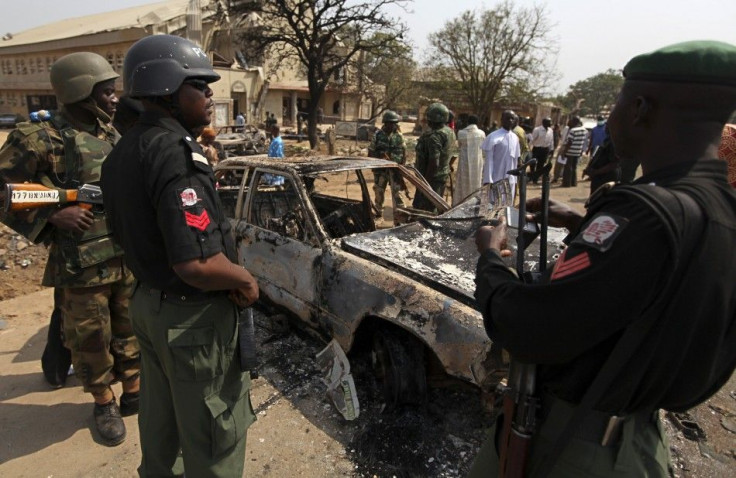Nigeria: Boko Haram's Violence Moves South

Nigerian security forces raided a bomb-making factory allegedly belonging to Islamic rebel group Boko Haram on Sunday, killing at least nine insurgents in the process.
One government soldier was also killed and two were injured when state forces clashed with militants in the Okene district of Kogi state, about 180 miles south of the Nigerian capital of Abuja.
According to Nigeria's Vanguard newspaper, Boko Haram members opened fire on police after the authorities discovered the facility, but with the help of a military helicopter the security forces took control of the factory.
There were some skirmishes between some hoodlums and the military, Jacob Edi, a spokesman for the state governor, told Agence France Presse news agency.
The governor of Kogi state said on Sunday that his government would provide medical treatment for the injured officers.
The raid was significant not just as a victory for President Goodluck Jonathan's Joint Security Force, a highly criticized national security team made up specifically to combat the Boko Haram insurgency, but also for the location of the factory.
With only a few exceptions, including the horrific Christmas Day church bombings in Abuja, Boko Haram has only been active in Nigeria's Muslim-dominated north, where the group is believed to benefit from some popular support. However, the bomb-making facility was the second discovered in Kogi in a week, an indication that the rebels are making inroads into the country's predominantly Christian south.
Boko Haram has been active in the north since 2009, but the group has unleashed an unprecedented wave of violence in Nigeria over the past year, and the deadly raid in Kogi was only one of a number of attacks over the weekend. An explosion and a shootout shocked the city of Kaduna, the capital of the northern Kaduna State, and a local government official was assassinated in the city of Maiduguri, which has suffered mightily from the militants' violence.
Three police stations in the northeastern state of Yobe were burned to the ground on Saturday. According to reports, militants drove from the cities of Potiskum to Ninger setting regional police outposts ablaze. At least two people were killed, although the details of the deaths are not clear.
”The attackers then moved to a police outpost on the outskirts of the town, which they subdued with explosives, and burnt it down,” Yobe state police spokesman Gbadegesin Toyin told AFP.
We can’t speak of casualties because of the darkness and the fire burning at the police station, which make it difficult to ascertain those affected in the attacks.”
More than 1,000 people have been killed during Boko Haram's quest to turn Nigeria into a Muslim nation. As a testament to the group's increasing strength, about half of those deaths occurred in 2011 alone and another quarter in the first three months of 2012.
We are ... only fighting security personnel and their agents. We are not fighting poor Nigerians, Boko Haram said in a letter to the residents of Kaduna, despite having killed hundreds of civilians -- both Christian and Muslim -- in the past.
Our members are being trailed and killed on one hand, and on the other hand, some people are telling us to surrender our arms and come out. This is impossible.
© Copyright IBTimes 2025. All rights reserved.





















